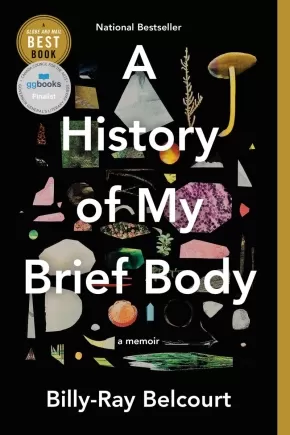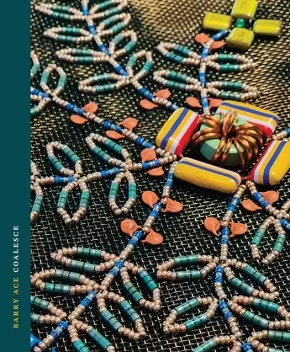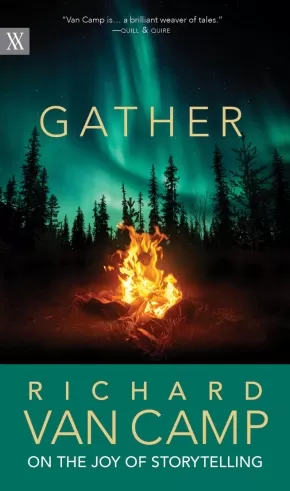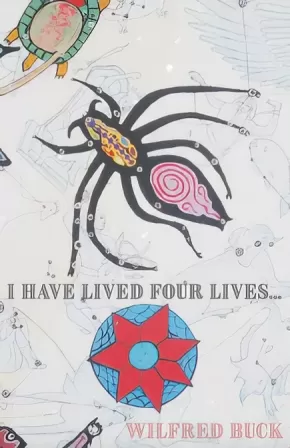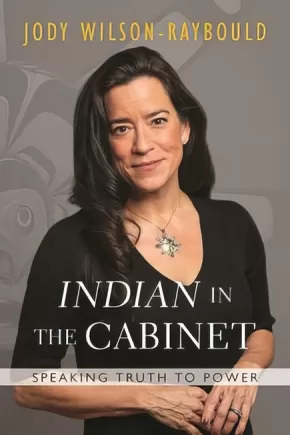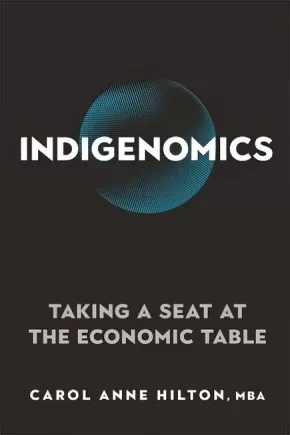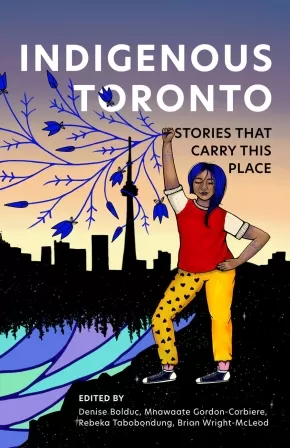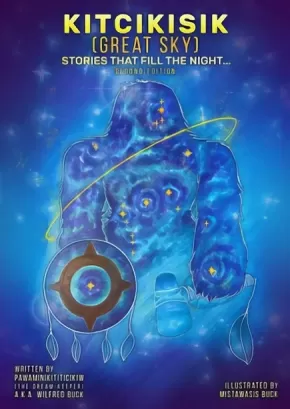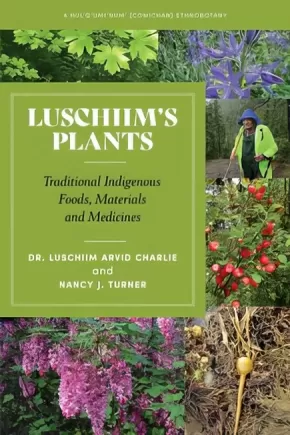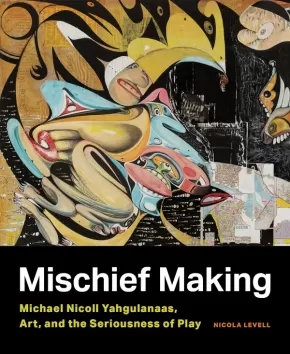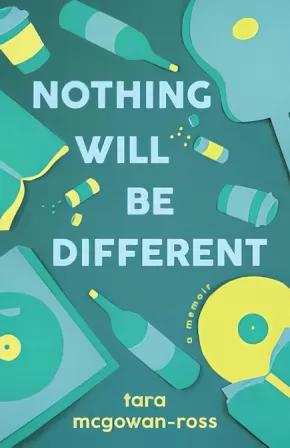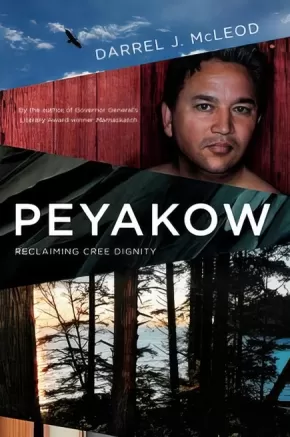
First Nations
121
-
135
of
244 Results;
Sort By
Go To
of 17
A History of My Brief Body (PB)
$19.95
Format:
Paperback
Text Content Territories:
Indigenous Canadian; First Nations; Cree (Nehiyawak); Woodland Cree; Woods Cree; Driftpile First Nation;
Grade Levels: University/College;
ISBN / Barcode: 9780735237803
Synopsis:
Synopsis:
A slim but electrifying debut memoir about the preciousness and precariousness of queer Indigenous life.
Opening with a tender letter to his kokum and memories of his early life on the Driftpile First Nation, Billy-Ray Belcourt delivers a searing account of Indigenous life that’s part love letter, part rallying cry.
With the lyricism and emotional power of his award-winning poetry, Belcourt cracks apart his history and shares it with us one fragment at a time. He shines a light on Canada’s legacy of colonial violence and the joy that flourishes in spite of it. He revisits sexual encounters, ruminates on first loves and first loves lost, and navigates the racial politics of gay hookup apps. Among the hard truths he distills, the outline of a brighter future takes shape.
Bringing in influences from James Baldwin to Ocean Vuong, this book is a testament to the power of language—to devastate us, to console us, to help us grieve, to help us survive. Destined to be dog-eared, underlined, treasured, and studied for years to come, A History of My Brief Body is a stunning achievement from one of this generation’s finest young minds.
Awards
- Winner of the Hubert Evans Non-Fiction Prize
Reviews
“Bursting with all the movements of sex, riot, and repose, this book presents us with a shock of recognition and reclamation, and we are better for it―punch drunk and aching but, oh, so much better. I’m gutted by his brilliant mind.” ―Cherie Dimaline
“Displays a pervading lucidity, akin to dreaming while standing wide awake, feet firmly on the soil . . . [A] fascinating exploration of the impact of colonialism in all its ramifications.” —Quill & Quire
Additional Information
192 pages | 5.01" x 7.50" | Paperback
Beyond the Orange Shirt Story
$19.99
Format:
Paperback
Text Content Territories:
Indigenous Canadian; First Nations; Salish; Interior Salish; Secwepemc (Shuswap); Stswecem'c Xgat'tem;
ISBN / Barcode: 9781989122754
Synopsis:
Synopsis:
Beyond the Orange Shirt Story: A collection of stories from family and friends of Phyllis Webstad - Before, during, and after their Residential School experiences.
Beyond the Orange Shirt Story is a unique collection of truths, as told by Phyllis Webstad's family and others, that will give readers an up-close look at what life was like before, during, and after their Residential School experiences. In this book, Survivors and Intergenerational Survivors share their stories authentically and in their own words. Phyllis Webstad is a Residential School Survivor and founder of the Orange Shirt Day movement. Phyllis has carefully selected stories to help Canadians educate themselves and gain a deeper understanding of the impacts of the Residential School System. Readers of this book will become more aware of a number of challenges faced by many Indigenous peoples in Canada. With this awareness comes learning and unlearning, understanding, acceptance, and change. Phyllis's hope is that all Canadians honour the lives and experiences of Survivors and their families as we go Beyond the Orange Shirt Story.
Educator Information
This book gives readers an up-close look at what life was like for many Survivors — before, during, and after their Residential School experiences. These personal Survivor accounts, relayed in a number of one on one interviews, are authentically shared in their own voices.
Young Adult Nonfiction (Ages 12+).
This book has a Teacher Lesson Plan: Beyond the Orange Shirt Story Teacher Lesson Plan
This book is available in French: Derrière l'histoire du chandail orange
Additional Information
100 pages | 5.50" x 8.50" | Paperback
Coalesce
$20.00
Artists:
Format:
Paperback
Text Content Territories:
Indigenous Canadian; First Nations; Anishinaabeg;
ISBN / Barcode: 9780994036131
Synopsis:
Synopsis:
Coalesce is a fusion of distinct Anishinaabeg aesthetics of the Great Lakes region with refuse from Western society’s technological and digital age in order to intentionally shift an object’s materiality and its accepted paradigm within the physical world. It is through the integration and juxtaposition of recognizable materials used in the making of Anishinaabeg material culture, such as glass beads and porcupine quills, with new-found materials, such as electronic components (capacitors and resistors), that this body of work disproves any notion of Anishinaabeg cultural stasis. Coalesce demonstrates the continuum of Anishinaabeg innovation and expression by making use of disparate materials that knowingly coalesce and segue seamlessly into contemporary Anishinaabeg artistic tradition and material culture.
Additional Information
48 pages | 7.00" x 8.50"
Gather: Richard Van Camp on the Joy of Storytelling
$19.95
Format:
Paperback
Text Content Territories:
Indigenous Canadian; First Nations; Dene; Tlicho (Dogrib);
ISBN / Barcode: 9780889777002
Synopsis:
Synopsis:
Stories are medicine. During a time of heightened isolation, bestselling author Richard Van Camp shares what he knows about the power of storytelling—and offers some of his own favourite stories from Elders, friends, and family.
Gathering around a campfire, or the dinner table, we humans have always told stories. Through them, we define our identities and shape our understanding of the world.
Master storyteller and bestselling author Richard Van Camp writes of the power of storytelling and its potential to transform speakers and audiences alike.
In Gather, Van Camp shares what elements make a compelling story and offers insights into basic storytelling techniques, such as how to read a room and how to capture the attention of listeners. And he delves further into the impact storytelling can have, helping readers understand how to create community and how to banish loneliness through their tales. A member of the Tlicho Dene First Nation, Van Camp also includes stories from Elders whose wisdom influenced him.
During a time of uncertainty and disconnection, stories reach across vast distances to offer connection. Gather is a joyful reminder of this for storytellers: all of us.
Reviews
“Stories and storytellers are an important part of what makes us human. Van Camp’s stories, whether they feature light comedy, family discord and reconciliation or his vivid images of the legendary Wheetago monsters, revived by global warming and horrifically hungry for human flesh, are gifts to the reader.” —Vancouver Sun
“Van Camp is…a brilliant weaver of tales.” —Quill & Quire
Additional Information
162 pages | 5.00" x 8.50"
I Have Lived Four Lives...
$24.00
Format:
Paperback
Text Content Territories:
Indigenous Canadian; First Nations; Cree (Nehiyawak); Swampy Cree ; Opaskwayak;
ISBN / Barcode: 9781927886496
Synopsis:
Synopsis:
In this unique collection of writings from Ininew Dream Keeper (Pawami niki titi cikiw) Wilfred Buck, he illustrates through astounding stories, four separate stages of personal experience. The stories in I Have Lived Four Lives... are designed as aids to assist in discovery and healing for Indigenous youth, but instead of being didactic, they encompass a range of hilarious and vivid recollections that revolve around visions and dreams, and that ultimately trace Buck's path to becoming a teacher in Indigenous cosmology and astronomy. Beginning by explaining how the word Ininew refers to the phrase mixing of four, Buck embarks upon this series of dazzling stories: herein is the story of how I lived and how I died and how I lived again along with the dreams I have dreamed and the visions I have seen.
Additional Information
6.00" x 9.00"
Indian in the Cabinet: Speaking Truth to Power
$34.99
Format:
Hardcover
Text Content Territories:
Indigenous Canadian; First Nations; Kwakwaka'wakw (Kwakiutl); Musgamagw Tsawataineuk; Ligwilda'wx (Laich-kwil-tach); We Wai Kai Nation;
Reading Level: N/A
ISBN / Barcode: 9781443465366
Synopsis:
Synopsis:
A compelling political memoir of leadership and speaking truth to power by one of the most inspiring women of her generation.
Jody Wilson-Raybould was raised to be a leader. Inspired by the example of her grandmother, who persevered throughout her life to keep alive the governing traditions of her people, and raised as the daughter of a hereditary chief and Indigenous leader, Wilson-Raybould always knew she would take on leadership roles and responsibilities. She never anticipated, however, that those roles would lead to a journey from her home community of We Wai Kai in British Columbia to Ottawa as Canada’s first Indigenous Minister of Justice and Attorney General in the Cabinet of then newly elected prime minister, Justin Trudeau.
Wilson-Raybould’s experience in Trudeau’s Cabinet reveals important lessons about how we must continue to strengthen our political institutions and culture, and the changes we must make to meet challenges such as racial justice and climate change. As her initial optimism about the possibilities of enacting change while in Cabinet shifted to struggles over inclusivity, deficiencies of political will, and concerns about adherence to core principles of our democracy, Wilson-Raybould stood on principle and, ultimately, resigned. In standing her personal and professional ground and telling the truth in front of the nation, Wilson-Raybould demonstrated the need for greater independence and less partisanship in how we govern.
"Indian” in the Cabinet: Speaking Truth to Power is the story of why Wilson-Raybould got into federal politics, her experience as an Indigenous leader sitting around the Cabinet table, her proudest achievements, the very public SNC-Lavalin affair, and how she got out and moved forward. Now sitting as an Independent Member in Parliament, Wilson-Raybould believes there is a better way to govern and a better way for politics—one that will make a better country for all.
Additional Information
352 pages | 6.00" x 9.00" | Hardcover
Indigenomics: Taking a Seat at the Economic Table
$24.99
Format:
Paperback
Text Content Territories:
Indigenous Canadian;
Grade Levels: University/College;
ISBN / Barcode: 9780865719408
Synopsis:
Synopsis:
Igniting the $100 billion Indigenous economy
It is time. It is time to increase the visibility, role, and responsibility of the emerging modern Indigenous economy and the people involved. This is the foundation for economic reconciliation. This is Indigenomics.
Indigenomics lays out the tenets of the emerging Indigenous economy, built around relationships, multigenerational stewardship of resources, and care for all. Highlights include:
- The ongoing power shift and rise of the modern Indigenous economy
- Voices of leading Indigenous business leaders
- The unfolding story in the law courts that is testing Canada's relationship with Indigenous peoples
- Exposure of the false media narrative of Indigenous dependency
- A new narrative, rooted in the reality on the ground, that Indigenous peoples are economic powerhouses
- On the ground examples of the emerging Indigenous economy.
Indigenomics calls for a new model of development, one that advances Indigenous self-determination, collective well-being, and reconciliation. This is vital reading for business leaders and entrepreneurs, Indigenous organizations and nations, governments and policymakers, and economists.
Awards
- 2022 First Nations Community Reads Award
Educator Information
This book is centered within the United Nations Declaration on the Rights of Indigenous Peoples (UNDRIP).
Indigenomics is a new topic and a previously unpublished contribution to new economic thought.
This book is an important work in the emerging modern Indigenous economy. It is a guide to fully realizing the potential of the emerging Indigenous economy. It lays out the emerging power shift and rise of Indigenous economic empowerment. It acknowledges the unfolding story shaping Canada through the law courts that is testing the foundation of the Crown relationship with Indigenous peoples.
Includes interviews with six business leaders, all exceptional in their field.
Additional Information
272 pages | 6.00" x 9.00" | 20 b&w illustrations
Indigenous Toronto: Stories that Carry This Place
$24.95
Editors:
● Denise Bolduc (Indigenous Canadian; First Nations; Anishinaabeg; Ojibway; Batchewana;)
● Mnawaate Gordon-Corbiere (Indigenous Canadian; First Nations; Anishinaabeg; Ojibway; M'Chigeeng First Nation;)
● Rebeka Tabobondung (Indigenous Canadian; First Nations; Anishinaabeg; Wasauksing First Nation;)
 Show More ...
Show More ...
● Mnawaate Gordon-Corbiere (Indigenous Canadian; First Nations; Anishinaabeg; Ojibway; M'Chigeeng First Nation;)
● Rebeka Tabobondung (Indigenous Canadian; First Nations; Anishinaabeg; Wasauksing First Nation;)
Format:
Paperback
Text Content Territories:
Indigenous Canadian; First Nations; Anishinaabeg; Haudenosaunee (Iroquois); Huron-Wendat (Ouendat);
ISBN / Barcode: 9781552454152
Synopsis:
Synopsis:
A collection of perspectives by and about Indigenous Toronto, past, present, and future.
Beneath every major city in North America lies a deep and rich Indigenous history that has been colonized, paved over, and ignored. Few of its current inhabitants know that Toronto has seen 12,000 years of different peoples, including the Haudenosaunee, the Anishinaabe, the Huron-Wendat, and the Mississaugas of the New Credit, and a vibrant culture and history that thrives to this day.
With original contributions by Indigenous elders, scholars, journalists, artists, activists, and historians about art, food, health, and more, this unique anthology explores the poles of erasure and cultural continuity that have come to define a crossroads city-region that was known as a meeting place long before the arrival of European settlers.
Contributors include political scientist Hayden King, historian Alan Corbiere, musician Elaine Bomberry, artist Duke Redbird, playwright Drew Hayden Taylor, educator Kerry Potts, writer/journalist Paul Seesequasis and former Mississaugas of the New Credit chief Carolyn King.
Additional Information
192 pages | 5.50" x 8.50"
Kitcikisik: (Great Sky) Tellings That Fill the Night Sky
$22.95
Artists:
Format:
Paperback
Text Content Territories:
Indigenous Canadian; First Nations; Cree (Nehiyawak);
ISBN / Barcode: 9781990297038
Synopsis:
Synopsis:
Pawaminikititicikiw, Wilfred Buck, is an Ininew / Cree, Knowledge and Dream Keeper of the Opaskwayak Cree Nation of Northern Manitoba. He is the author of Tipiskawi Kisik: Night Sky Star stories, and I Have Lived Four Lives, a memoir. Kitcikisik (Great Sky) features Indigenous Star Knowledge and is the second edition of Tipiskawi Kisik.
Educator Information
Recommended by the publisher for grades 7+
Additional Information
86 Pages
Luschiim’s Plants: Traditional Indigenous Foods, Materials and Medicines: A Hul′q′umi′num′ (Cowichan) Ethnobotany
$29.95
Format:
Paperback
Text Content Territories:
Indigenous Canadian; First Nations; Salish; Coast Salish; Cowichan;
ISBN / Barcode: 9781550179453
Synopsis:
Synopsis:
Luschiim’s Plants: A Guide to Traditional Indigenous Foods, Materials and Medicines is an invaluable compendium of Hul′q′umi′num′ traditional knowledge.
Respected Cowichan Tribe Elder and botanical expert Luschiim, Arvid Charlie, began his education in early childhood, learning from his great grandparents and others of their generation. Luschiim’s Plants represents his dedication to the survival of the Hul′q′umi′num′ language and traditional knowledge of plants for future generations. From the healing properties of qaanlhp (arbutus) to the many practical applications of q’am (bull kelp), the information presented in this remarkable guide shares knowledge of plants that Luschiim is familiar with through his own Elders’ teachings and by way of direct experience over the course of his lifetime, and compiled from field outings and interviews with notable ethnobiologist and botanist Nancy J. Turner.
In this unprecedented collection of botanical information, over 140 plants are categorized within their broad botanical groupings: algae and seaweeds, lichens, fungi and mushrooms, mosses and liverworts, ferns and fern-allies, coniferous trees, deciduous trees, shrubs and vines, and herbaceous flowering plants. Each entry is illustrated with a colour photo and includes the plant’s common, scientific and Hul′q′umi′num′ names; a short description; where to find it; and cultural knowledge related to the plant. Additional notes encompass plant use, safety and conservation; the linguistic writing system used for Hul′q′umi′num′ plant names; as well as miscellaneous notes from interviews with Luschiim.
This volume is an important addition to the bookshelves of botanists, and will fascinate anyone with an interest in plants of the West Coast and their traditional uses by Coast Salish peoples.
In this unprecedented collection of botanical information, over 140 plants are categorized within their broad botanical groupings: algae and seaweeds, lichens, fungi and mushrooms, mosses and liverworts, ferns and fern-allies, coniferous trees, deciduous trees, shrubs and vines, and herbaceous flowering plants. Each entry is illustrated with a colour photo and includes the plant’s common, scientific and Hul′q′umi′num′ names; a short description; where to find it; and cultural knowledge related to the plant. Additional notes encompass plant use, safety and conservation; the linguistic writing system used for Hul′q′umi′num′ plant names; as well as miscellaneous notes from interviews with Luschiim.
This volume is an important addition to the bookshelves of botanists, and will fascinate anyone with an interest in plants of the West Coast and their traditional uses by Coast Salish peoples.
Educator Information
This resource is in English with additional notes that encompass the linguistic writing system used for Hul′q′umi′num′ plant names.
This resource is in English with additional notes that encompass the linguistic writing system used for Hul′q′umi′num′ plant names.
Additional Information
288 pages | 6.00" x 9.00"
288 pages | 6.00" x 9.00"
Me Tomorrow: Indigenous Views on the Future
$22.95
Editors:
Format:
Paperback
Text Content Territories:
Indigenous Canadian; First Nations; Inuit; Métis;
Reading Level: N/A
ISBN / Barcode: 9781771622943
Synopsis:
Synopsis:
First Nations, Métis and Inuit artists, activists, educators and writers, youth and elders come together to envision Indigenous futures in Canada and around the world.
Discussing everything from language renewal to sci-fi, this collection is a powerful and important expression of imagination rooted in social critique, cultural experience, traditional knowledge, activism and the multifaceted experiences of Indigenous people on Turtle Island.
In Me Tomorrow:
Darrel J. McLeod, Cree author from Treaty-8 territory in Northern Alberta, blends the four elements of the Indigenous cosmovision with the four directions of the medicine wheel to create a prayer for the power, strength and resilience of Indigenous peoples.
Autumn Peltier, Anishinaabe water-rights activist, tells the origin story of her present and future career in advocacy—and how the nine months she spent in her mother’s womb formed her first water teaching. When the water breaks, like snow melting in the spring, new life comes.
Lee Maracle, acclaimed Stó:lō Nation author and educator, reflects on cultural revival—imagining a future a century from now in which Indigenous people are more united than ever before.
Other essayists include Cyndy and Makwa Baskin, Norma Dunning, Shalan Joudry, Shelley Knott-Fife, Tracie Léost, Stephanie Peltier, Romeo Saganash, Drew Hayden Taylor and Raymond Yakeleya.
For readers who want to imagine the future, and to cultivate a better one, Me Tomorrow is a journey through the visions generously offered by a diverse group of Indigenous thinkers.
Additional Information
224 pages | 5.50" x 8.50" | Paperback
Mischief Making: Michael Nicoll Yahgulanaas, Art, and the Seriousness of Play
$29.95
Artists:
Format:
Paperback
Text Content Territories:
Indigenous Canadian; First Nations; Haida;
Reading Level: N/A
ISBN / Barcode: 9780774867368
Synopsis:
Synopsis:
In a gorgeously illustrated exploration of the art of Michael Nicoll Yahgulanaas, Mischief Making disproves any notion that play is frivolous. Deploying mischievous tactics, Yahgulanaas shines a spotlight on serious topics.
Expressive and exuberant, comic and imaginative: these characteristics suffuse the work of the internationally recognized creator of Haida manga. His distinctive style stretches, twists, and flips the formlines of classic Haida art to create imagery that resonates with the graphic vitality of Asian manga. Mischief Making delineates the evolution of the artist’s visual practice into a uniquely hybrid aesthetic, uncovering its philosophical underpinnings. Initially focused on paper-based narratives, his work has expanded into painted canvases, mixed-media installations, repurposed automobile parts, large-scale public art projects, and animated forms. Yet despite its mutability, Yahgulanaas’s art is consistently engaged with contemporary cultural concerns, investigating the intersections of Indigenous and other worldviews, the politics of land, cultural heritage, and global ecological affairs.
Mischief Making reveals the artist’s deep understanding of the seriousness of play. His refiguring of lines and stories opens up a realm in which the disruption of what’s expected allows different ways of experiencing, knowing, and seeing the world to emerge.
Reviews
"This is an exciting journey through the refreshing life’s work of one of Canada’s foremost Indigenous artists. Learning from Nicola Levell’s insightful analysis opens the eyes to a wondrous world beyond stale and superseded categories of ‘tradition’, ‘Western’ and ‘Indigenous’! Highly recommended!" — Arnd Schneider, professor, Department of Social Anthropology, University of Oslo
"The Northwest Coast dances with the East and 8.5 tons of stainless steel/copper/marble, then strides to Emma Lake. A comprehensive look at the work of Yahgulanaas – we witness in text, he is doing what he can – just like the hummingbird."
— Dana Claxton (Lakota), artist, professor and department head of Art History, Visual Art and Theory, University of British Columbia
Additional Information
168 pages | 9.00" x 11.00" | 149 colour illus., 22 b&w illus. | Paperback
168 pages | 9.00" x 11.00" | 149 colour illus., 22 b&w illus. | Paperback
Nothing Will Be Different: A Memoir
$21.99
Format:
Paperback
Text Content Territories:
Indigenous Canadian; First Nations; Mi'kmaq;
Reading Level: N/A
ISBN / Barcode: 9781459748736
Synopsis:
Synopsis:
A neurotic party girl's coming-of-age memoir about learning to live before getting ready to die.
Tara has it pretty good: a nice job, a writing career, a forgiving boyfriend. She should be happy. Yet Tara can’t stay sober. She’s terrible at monogamy. Even her psychiatrist grows sick of her and stops returning her calls. She spends most of her time putting out social fires, barely pulling things off, and feeling sick and tired.
Then, in the autumn following her twenty-seventh birthday, an abnormal lump discovered in her left breast serves as the catalyst for a journey of rigorous self-questioning. Waiting on a diagnosis, she begins an intellectual assessment of her life, desperate to justify a short existence full of dumb choices. Armed with her philosophy degree and angry determination, she attacks each issue in her life as the days creep by and winds up writing a searingly honest memoir about learning to live before getting ready to die.
Reviews
"This delightful book, appropriately enough, works like your favourite mixtape. It's got everything you want, and somehow it all fits. The arrangement is unexpected but, in retrospect, seems obviously right. Here is softness and pain, intimacy and revulsion, flourishing and sickness. And McGowan-Ross just sounds so good." — Sasha Chapin, author of All The Wrong Moves
"Tara McGowan-Ross is an unpretentious poet and philosopher weaving together meaning from the pain, grief, heartache, as well as simple joy of being alive. Nothing Will Be Different is a meditation on amor fati: the love of fate, the love of what is. By being with all of it: trauma, profound loss, the reality of death, addiction, precarity, the gig economy, hard work, love both dizzying and secure, sex, and insatiable desire, Tara shows us that transformation comes not through a battle against what is, but from the willingness to be changed by it." — Clementine Morrigan, author of Love Without Emergency
Additional Information
240 pages | 5.50" x 8.50"
Orange Shirt Day Book Package
$92.99
Artists:
Text Content Territories:
Indigenous Canadian; First Nations; Salish; Interior Salish; Secwepemc (Shuswap); Stswecem'c Xgat'tem;
ISBN / Barcode: 9781989122808
Synopsis:
Synopsis:
A collection of authentic Orange Shirt Day books from the founder of the Orange Shirt Day movement, Phyllis Webstad. Package includes four books and three accompanying lesson plans, The Orange Shirt Story, Phyllis's Orange Shirt, Orange Shirt Day and Beyond the Orange Shirt Story.
Educator Information
Includes picture books for children, as well as books for young adults. Review individual titles for more information about each include:
Additional Information
9.00" x 12.00"
Peyakow: Reclaiming Cree Dignity, A Memoir
$29.95
Format:
Hardcover
Text Content Territories:
Indigenous Canadian; First Nations; Cree (Nehiyawak);
Grade Levels: 12; University/College;
ISBN / Barcode: 9781771622318
Synopsis:
Synopsis:
Mamaskatch, Darrel J. McLeod’s 2018 memoir of growing up Cree in Northern Alberta, was a publishing sensation—winning the Governor General's Literary Award for Non-Fiction, shortlisted for many other major prizes and translated into French and German editions. In Peyakow, McLeod continues the poignant story of his impoverished youth, beset by constant fears of being dragged down by the self-destruction and deaths of those closest to him as he battles the bullying of white classmates, copes with the trauma of physical and sexual abuse, and endures painful separation from his family and culture. With steely determination, he triumphs: now elementary teacher; now school principal; now head of an Indigenous delegation to the UN in Geneva; now executive in the Government of Canada—and now a celebrated author.
Brutally frank but buoyed throughout by McLeod’s unquenchable spirit, Peyakow—a title borrowed from the Cree word for “one who walks alone”—is an inspiring account of triumph against unimaginable odds. McLeod’s perspective as someone whose career path has crossed both sides of the Indigenous/white chasm resonates with particular force in today’s Canada.
Reviews
"Bravo! A job well done. You, my friend, are a very good writer." — Tomson Highway, February 2021
"This is the story of the remarkable professional life of a remarkable man. Whatever he worked on, including such important government files as the Nisga’a and Dene land settlements, he started out and remained a fierce champion of Indigenous rights. Wherever he travelled, he carried with him his past, the joys and tragedies of his own family, and the dignity and courage of his Cree ancestors. The book is a story of triumph, made particularly moving because McLeod doesn’t hide the demons he wrestles with as a two-spirited and Indigenous man." — Lorna Crozier, author of Through the Garden, February 2021
"McLeod boldly reconnects and reflects upon decades of lived experiences from familial, Cree traditional life of living off the land, to a professional (ultimately international) life dedicated to Indigenous rights and wellbeing. By reconnecting stories torn apart by poverty, tragic deaths, racism, homophobia and bureaucratic white privilege, McLeod performs a sacred act." — Betsy Warland, author of Oscar of Between, February 2021
Additional Information
240 pages | 6.00" x 9.00" | 8-page photo insert
Sort By
Go To
of 17

